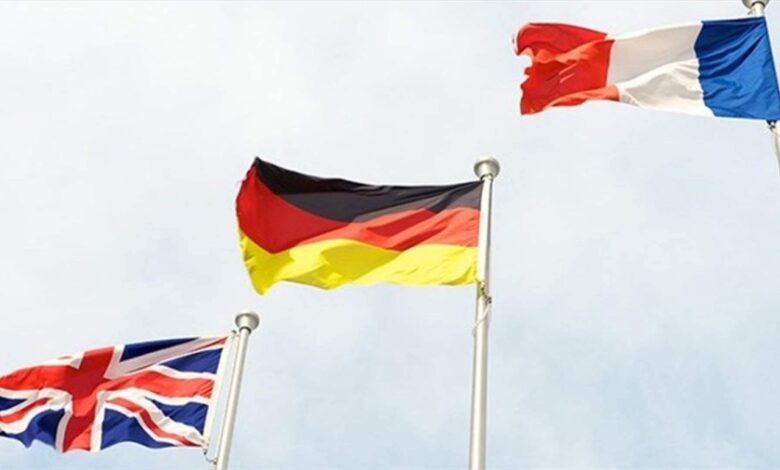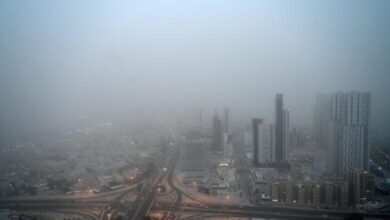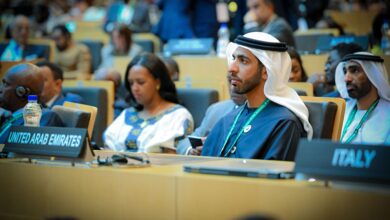
In a unified response to the rising tensions in the Middle East, the leaders of France, Germany, and the United Kingdom have issued a joint statement today urging Iran to refrain from further actions that could destabilize the region, following the U.S. airstrikes on three Iranian nuclear facilities.
The statement — signed by French President Emmanuel Macron, British Prime Minister Keir Starmer, and German Chancellor Friedrich Merz — called on Tehran to return to the negotiating table and engage in talks to resolve all concerns regarding its nuclear ambitions, reports Al-Rai daily.
“We call on Iran to engage in negotiations leading to a comprehensive agreement that addresses all issues related to its nuclear program,” the leaders declared. “We stand ready to contribute to this process in coordination with all relevant parties.”
While the joint statement did not directly comment on the U.S. military action led by President Donald Trump, it underscored the collective European stance that Iran must never be allowed to obtain nuclear weapons. The leaders emphasized their continued diplomatic efforts to reduce tensions and prevent the conflict from spreading further.
“Our goal remains clear: to ensure Iran never acquires a nuclear weapon and no longer poses a threat to regional stability,” the statement said. “We will continue working jointly to de-escalate the situation and support peace.”
This diplomatic appeal comes after a failed attempt to revive nuclear negotiations in Geneva on Friday, where the foreign ministers of France, Germany, and the UK met with their Iranian counterpart.
U.S. President Trump dismissed those talks as ineffective and proceeded with military strikes, declaring them a necessary measure to dismantle Iran’s nuclear threat.
As regional actors brace for the fallout of these developments, the statement by Europe’s three major powers highlights growing concern over the risk of a wider conflict and reflects a clear diplomatic pivot toward containment and negotiation.
Iran, for its part, has vowed to continue its nuclear activities on an even larger scale, raising alarms among international observers and prompting fresh calls for a unified global response to avert further escalation.












